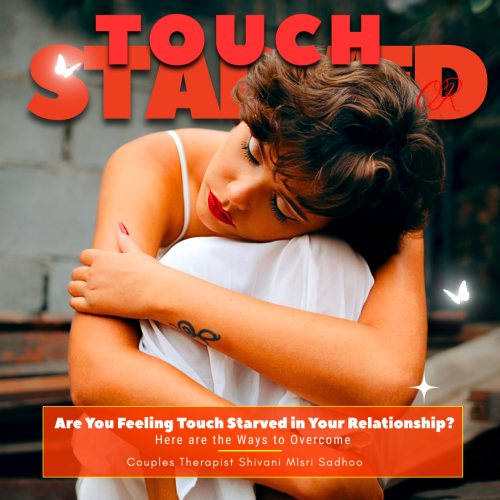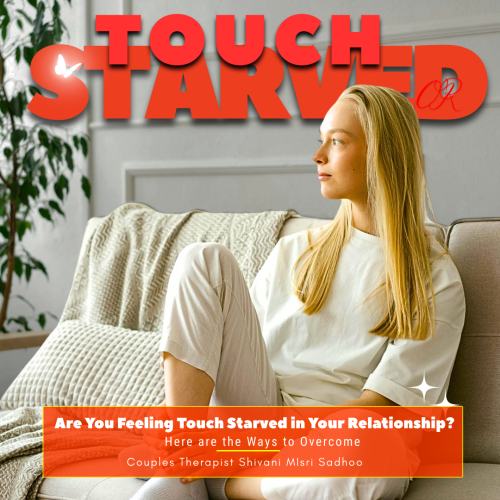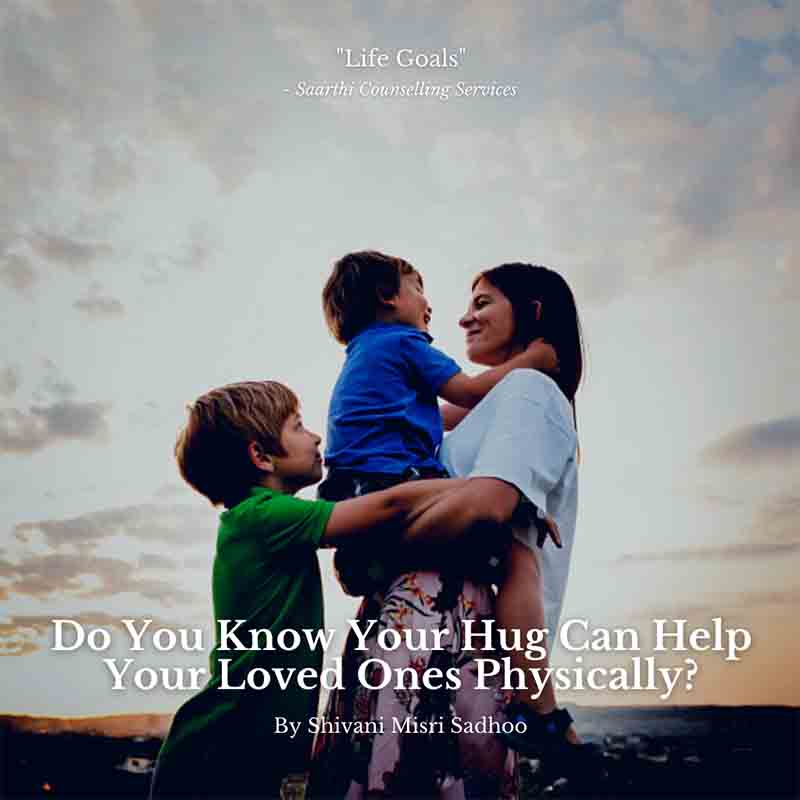Relationships are rarely perfect. Every couple experiences phases of closeness and distance, highs and lows. Yet, it’s often the little things—a warm hug, holding hands, or a gentle touch on the shoulder—that strengthen emotional bonds. Human touch plays a far more powerful role than many realize, promoting happiness, trust, and emotional security. Simple gestures like caresses, back rubs, or embraces release oxytocin, reducing stress and deepening connections.
When touch is absent for too long, a condition known as touch starvation can develop, creating feelings of isolation and distress. Recognizing its signs and learning ways to reconnect physically and emotionally is essential for maintaining a healthy relationship, says Shivani Misri Sadhoo, who is one of India’s top couples and marriage counselors.
Understanding Touch Starvation
Touch starvation, sometimes called “skin hunger,” occurs when the body goes without nurturing physical contact. The skin’s nerves and pressure receptors respond to touch, triggering the release of “feel-good” chemicals like oxytocin. Without it, the nervous system can become restless, increasing stress and loneliness. Over time, prolonged absence of touch can impact both emotional and psychological well-being.
Why Does Physical Touch Matter?
Humans are wired for connection. From birth, gentle touch communicates safety, love, and security. Touch continues to play a vital role throughout life, offering multiple benefits:
- Reduces Stress: Touch lowers cortisol levels, calms the nervous system, and boosts mood-regulating chemicals like dopamine and serotonin.
- Strengthens Emotional Bonds: Hugs and gentle touches release oxytocin, enhancing trust, intimacy, and positive feelings toward others.
- Promotes Physical Health: Regular nurturing touch can improve immunity and lower blood pressure.
- Supports Mental Health: Touch has been shown to ease sadness, reduce anxiety, and lift overall mood.
Even small gestures—such as holding hands, a pat on the back, or a gentle embrace—can make a profound difference.
Signs You May Be Touch-Starved
Feeling disconnected from your partner or loved ones may indicate touch starvation. Common signs include:
- Persistent Loneliness: You may feel isolated even when surrounded by loved ones if physical affection is missing.
- Mood Imbalances: Lack of touch can reduce oxytocin levels, leading to irritability, anxiety, or low mood.
- Heightened Sensitivity: When touch is scarce, even brief physical contact can feel deeply comforting and emotionally significant.
Ways to Overcome Touch Starvation
- Self-Touch and Self-Care – Self-touch, like hugging yourself or placing a hand over your heart, can provide comfort and ease stress. Practicing mindful self-care, extending compassion inward, and treating yourself with kindness are essential parts of addressing touch starvation.
- Communicate with Loved Ones – Openly expressing your need for physical affection with your partner, family, or friends can help bridge the gap. Virtual interactions, such as video calls or heartfelt conversations, can also provide emotional nourishment when in-person contact isn’t possible.
- Alternative Forms of Touch – Engaging in activities that provide tactile stimulation, such as pet therapy, massage, weighted blankets, or using stress-relief objects, can help satisfy the body’s need for touch.
- Appreciate Small Gestures – Daily, simple acts—like sitting close, sharing a gentle touch, or exchanging a meaningful glance—can strengthen intimacy and connection. Even subtle gestures contribute to emotional bonding.
- Reconnect Through Memory – Recalling past moments of affection can reinforce emotional closeness and help the mind feel the warmth of nurturing touch.
Touch is more than physical contact; it is essential emotional nourishment. When absent, it can leave individuals feeling lonely, anxious, and disconnected. However, through self-care, communication, mindfulness, and small acts of connection, touch starvation can be addressed. Rebuilding meaningful physical and emotional closeness helps restore trust, love, and well-being in relationships.







